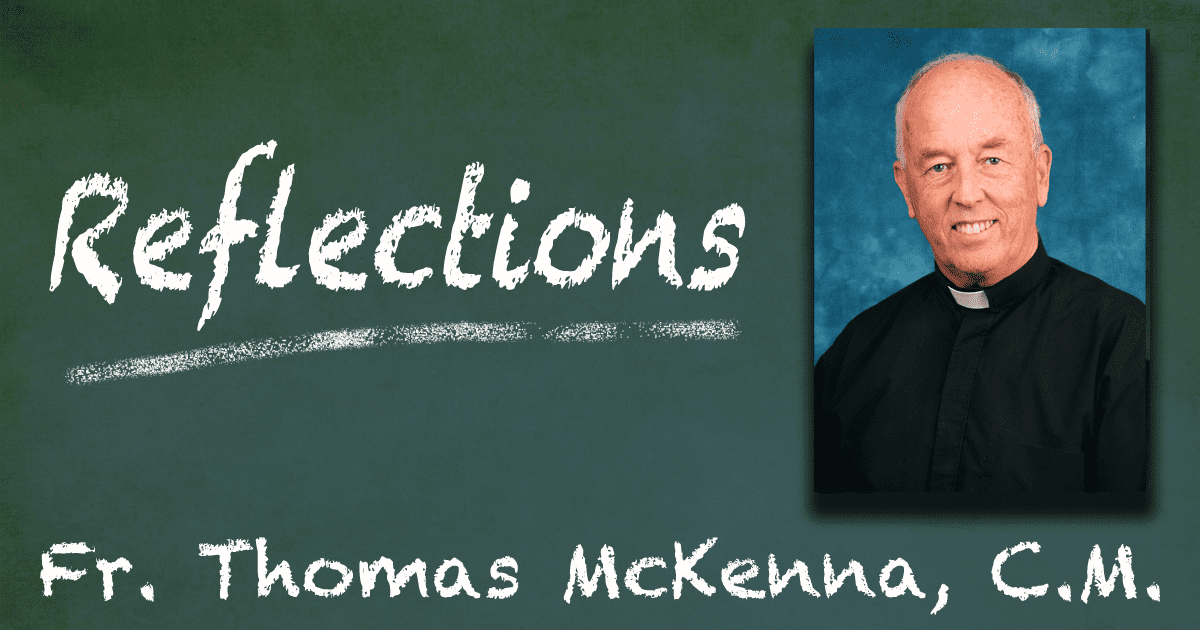Given A Break (Ex. 22:20; Mt 22:38-40)
In a recent conversation with a retired man who was helping in a shelter for the homeless, I got around to asking what had brought him to volunteer there. Why he was doing what he was doing? He felt sorry for the people living there, he said, but then he came around his deeper reason: “I got a break in life and I want to pass that on. I’ve been given, and I want to give back. There were times I was on the outside, and people took me inside.” In his unaffected way, he was voicing a truth that runs across the whole length of the Bible and all down the avenues of our faith: “I give help because I have been helped.”
 Christians recognize this as the very line of thought (better, movement of the heart) the author of Exodus attributes to Yahweh God. “Do not oppress the aliens among you, because back in Egypt when your yourselves were aliens and slaves, I led you out and gave you your freedom. You are now to give that same freedom and solicitude to the oppressed and vulnerable people you meet.” (Exodus 22:20) Transposed into the candid phrase of that retired volunteer, “You’ve been given a break. Pass on the favor you’ve been given.”
Christians recognize this as the very line of thought (better, movement of the heart) the author of Exodus attributes to Yahweh God. “Do not oppress the aliens among you, because back in Egypt when your yourselves were aliens and slaves, I led you out and gave you your freedom. You are now to give that same freedom and solicitude to the oppressed and vulnerable people you meet.” (Exodus 22:20) Transposed into the candid phrase of that retired volunteer, “You’ve been given a break. Pass on the favor you’ve been given.”
In Matthew’s gospel, Jesus tells us to love God and love the neighbor, but why? The short but profound answer: we have been loved first. We have been given this grace and favor, God gazing at us with loving eyes. Should we not pass on this life and goodness to others? What do we have that we have not been given?
Giving back is not an automatic response. There are many who have been freed up, given a new life, but who don’t make that next move. Somehow, the volunteer kept the favors done him fresh and close in memory. Those recollections of kindness and care stirred a fire inside him, prodding him out of his comfort zone and into that place of need.
In so many ways, we worshippers do the same every time we gather for the Eucharist; i.e., we tap into a memory — and more than a memory, an event in the here and now. Standing around this sacred table, we position ourselves to hear and take in the bounty being poured out on us. Certainly, that favor includes the very fact of our existence; we didn’t create ourselves. But in the Eucharist, what (especially who) we are being given assumes a much sharper and poignant shape. We’re not only remembering but are bringing into the present this act of overflowing generosity – the whole-hearted sacrifice that Jesus, God’s person in the world, makes so lovingly for us.
In his letter to the Ephesians, Paul proclaims such a favor, this “break” we have received. “At one time you were alienated from God’s community and were without hope and without God in this world. But now, you who were once far off have become near, by the blood of Christ.” (Ephesians 2:14). Writing to one of his discouraged confreres, Vincent counsels the same reliance on Divine graciousness, “In addition, when you make these reflections on your interior state, Monsieur, you must raise your mind to the consideration of His Adorable Goodness. (Volume: 5 | Page#: 166) To Toussaint Lebas, in Agde, 10 July 1654
It might seem flippant to express all this as a “break” we’ve been given. But if we can expand that notion exponentially, widen it to mean this undeserved and abounding mercy from God, we will come closer to touching down on the underlying reason we should help the stranger: we have been given and are to do our best to give back. Again, from Paul, “In Christ Jesus, the love of God has been poured out into our hearts.” (Rom 5:5). With Christ Jesus, we are called to pour a drop of that love into the hearts and lives of others, especially those whom the world considers outsiders.






Thanks for the write up. Very inspiring and encouraging. Sharing is caring.
Pure McKenna wisdom born of staying close to the Source!
Rhaner says something like: To the depth we realize our dependence, we are free. Gratitude is a great way to become free.